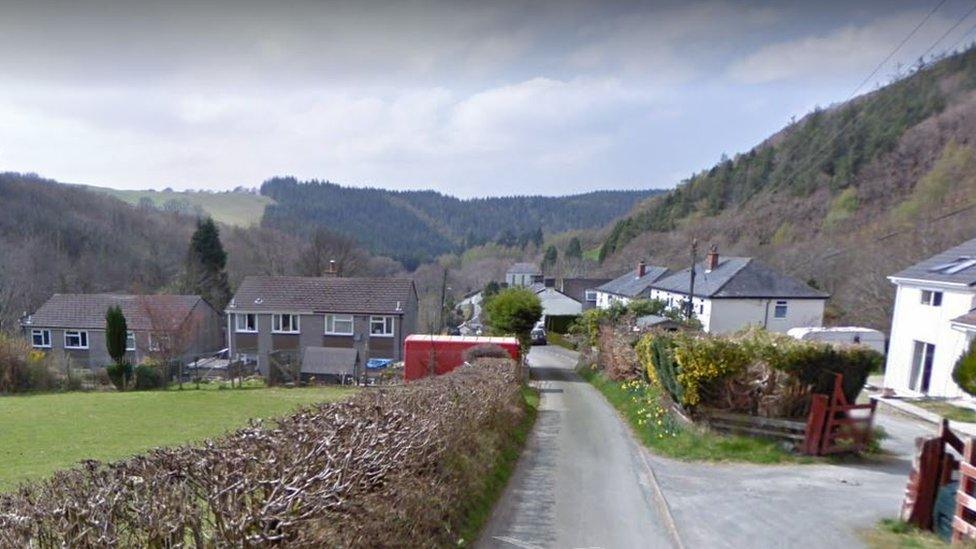Broadband: Poor speeds could see economy 'left behind'
- Published

Virgin Media's gigabit service will be available to people in parts of Cardiff and some parts of south-east Wales - giving them hyper-fast broadband
Rolling out fibre broadband and better mobile services must be made easier for providers, according to the National Infrastructure Commission for Wales.
It wants a new taskforce to make Wales more attractive for private sector digital infrastructure investment.
Otherwise the economy would be left behind with high-tech and fast growth firms leaving Wales, a report said.
The Welsh Government said the report's recommendations would inform its thinking in what action to take.
Without action, the report said, firms could relocate to parts of the UK with fast fibre broadband, good 4G and 5G coverage.
NICW commissioner Richard Feasey said: "There is a danger that many Welsh households and businesses will be at the end of the queue and this is going to take 10 years or so.
"In Wales we can't afford to have households stuck on their current broadband for long so we need to do something else and we need to look at using our mobile networks better so we can improve our broadband position during that period."
Some villagers are taking laptops outside to get a signal in order to apply for jobs
The commission was set up to support independent, better-informed advice, external on a longer-term strategy of infrastructure investment.
Mr Feasey said public investment in superfast broadband had worked and, despite difficult geography, Wales had about the same proportion, 95%, of homes connected as the UK as a whole .
But he it costs about five times more to get fibre connections to Welsh homes and businesses than the UK average, he added.
While the UK government has committed to every home having a fibre broadband connection by 2025, NICW does not think that is realistic and is concerned about "particular challenges" of deploying fibre in Wales.
It is worried Welsh households and businesses will be at the back of the queue because the population is not as dense as some areas of the UK, demand is weaker and the geography more challenging.

While the area is not devolved, the Welsh Government has been urged to take steps to help improve infrastructure
It called on the Welsh Government to make sure Wales gets equal priority in UK wide-schemes, change planning rules to make it easier for providers to rollout new services and commit to a 5G strategy, as Scotland has.
The report also suggested public money should be diverted from broadband to make it more common to use mobile services for data.
It said only 3% of all the data carried on UK networks used mobile networks , a much lower proportion than elsewhere in Europe and in New Zealand where 20% of data is carried that way.
NICW recommends that home mobile broadband connections could be a good, low cost option for business and homes in rural areas, on a permanent basis or until fibre to the home arrives.
Mr Feasy added: "Our concern, and the evidence that we have in our report, is that particularly new businesses and small businesses that will be established by young people, are the high-growth, job-creating businesses we want.
"They'll be relocated, they'll go and locate and be set up in other parts of the country where the infrastructure is adequate for what they need.
"So we will lose jobs and they will be displaced to other parts of the country."
The Welsh Government said recommendations would build on what has already been achieved with £200m investment in bringing superfast broadband to communities which would otherwise not have access.
"The report raises a number of issues which need further investigation and discussion with the commission on their viability and potential consequences," it added.
"This includes the impact of imposing a £3,500 cap on fibre connectivity in rural areas, the technical and logistical challenges of deploying 4G and 5G in very rural areas and the suggested moratorium on funding 5G testbeds and trials in Wales."
Related topics
- Published22 September 2020

- Published4 November 2020

- Published3 December 2020
